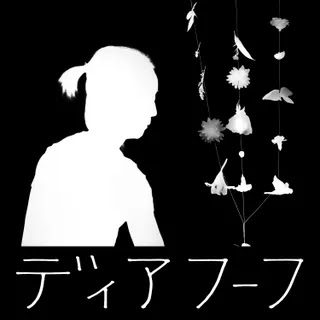On a collaboration between Austin’s More Eaze and Orange Milk co-founder Seth Graham, the music’s frequent rests and lacunae lend its jazz-tinged electroacoustic mesh a stony, severe quality.
There is a certain genre of image, popular on lonely, neurotic networks like Twitter and Reddit, called “liminal space.” These pictures show links between one hub of activity and another, places designed to dissolve from memory: an empty hotel hallway between bustling conference rooms, a clean road arcing through a blank suburb, an isolated gas station spilling fluorescent light onto midwinter snow. They are uncanny because they force you to focus on something meant to be ignorable; they sweep the edge into the center, upsetting the usual weight of things.
The Heart Pumps Kool-Aid, a new album by Seth Graham (co-founder of the experimentally minded Ohio label Orange Milk) and More Eaze (a.k.a. Mari Maurice, the Austin-based artist who’s recently collaborated with claire rousay and Dntel) working together as ---__--___, plays with a similar reframing. The music’s frequent rests and lacunae lend its jazz-tinged electroacoustic mesh a stony, severe quality. What’s not there holds impossible weight. This music is not so much about emptiness as it is about the point at which emptiness becomes substance—where, in an inverted transubstantiation, blood thins out into chemically dyed sugar water.
Voices like the ones that streak Kool-Aid tend to appear more often among busier sound environments. The hard, crystallizing Auto-Tune, the pitch-shifting, the distortion—these mutations usually spew from a pressure cooker of sensory overload made from hyper-compressed guitars, sawtooth synthesizers, breakbeats, and other chaos. It’s rarer for them to hover over environments as unpopulated as the ones dreamed here, to unfurl unhurriedly into expansive, drained space.
Severing these voices from their usual anxious churn exposes their fragility. The processing effects used here render the voice brittle and oblique; lyrics break off into largely unintelligible shards that only cohere at key moments. On “Sadness, infinite America ... shit,” More Eaze’s garbled syllables dance against bleats of saxophone and slashes of cello, instruments whose warm acoustic resonance amplifies the lostness of an Auto-Tuned voice set adrift. The arrangement also reveals the beauty in treating voices this way, how an artificial crack in a voice can trigger the same sympathetic response as a voice that cracks purely in the throat. The ear believes the feeling behind the quaver in each gesture; it might even believe the digitized break more.
At the album’s emotional crux, “In Memory of Simon Kingston,” an elegy for the 21-year-old musician who died in New York last November, three different voices glance off of each other. The track features the Ohio-based artist recovery girl as a guest vocalist, but it’s not always clear which voice belongs to which name, a confusion that deepens the album’s melancholic bewilderment. There is a high, concatenating chirp that flickers electric over the song’s largely acoustic base of piano, celesta, and violin; there are occasional bursts of enraged growls that sound like they’ve been shaved off a metal song and abandoned here; and there is More Eaze’s wistful, languid voice, the one that winds through much of the album as a whole. At a few points in the song, the voices converge as if holding each other in the emptiness, the friction between them softening. “I just wanted to be close to you,” More Eaze sings, her voice fracturing in its machinery but holding together just enough to preserve the language it carries.
A spoken-word sequence from the Ohio artist proxy.exe grounds the album in narrative near its midway point. With direct, unprocessed vocals set against washes of organ, “rock bottom ohio” offers a meditation on failure and resurgence, on splintering apart and then finding a way to love yourself enough to haul the fragments you can salvage into the days ahead. Even if those days are shrouded in absence so thick it suffocates, even if grief splits them open like a chasm, you pull the loose threads of mercy you can find from them. You gather yourself and go on.
















0 comments:
Post a Comment